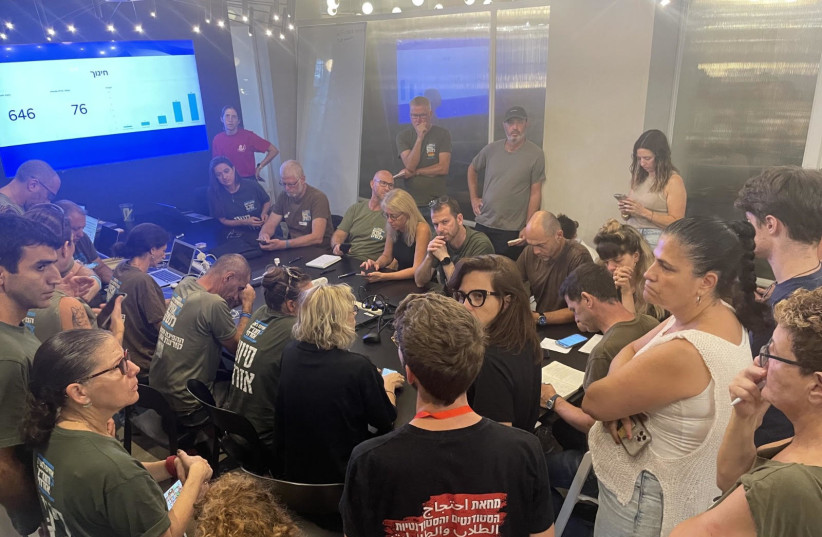For nine months, The Students' Protest movement joined the weekly protests against the government and the judicial reform, and then October 7 happened.
When Hamas terrorists invaded Israel and began massacring Israelis, launching a war, the movement realized that its efforts were needed elsewhere.
"From the moment it all started, we started helping locally wherever we were needed," said movement leader Nadav Zalzberger. "We decided we weren't waiting for the authorities to get organized, we were just going to do what we can where we can."
The movement's members are spread out across the country and started volunteering where they could locally last Saturday while in Jerusalem and Tel Aviv, the movement set up bases of operations for organized volunteering.
Joined by other major protest groups like Brothers in Arms, Building an Alternative, the Hi-Tech Protest, Hitorerut, One Heart, Common Home, and others, the Students' Protest has helped host families from the South and the North, collect equipment for soldiers, provide psychological care and more.

A pause in protests
The Students' Protest took upon itself also to provide help with education and childcare by babysitting, teaching classes in hospitals, and running day camps in hotels where families have evacuated to.
In areas where the government or local authorities have organized a system, the volunteering movement's have relinquished control, but they will continue to provide any other help necessary.
The protest movements are not alone, however.
"There has been an inspiring rate of commitment and mobilization to help," said Zalzberger. "We are getting help and support also from ultra-Orthodox people and religious Zionists."
Labor MK Gilad Kariv visited one of the bases of operations last week and said it was empowering.
"I wish all the evacuees from the areas near Gaza could see live the thousands of people who work around the clock so that they could understand the extent of the support and concern for them," he said. "This place is further proof that the massive democratic protest has been dedicated from its first moments to the State of Israel and its future."
But while they have seen people who used to protest against each other come together, Zalzberger said that "there are still people from the edges of society trying to sow hatred and negativity, and we cannot let them succeed."
Once the war is over, the Students' Protest will still be fighting for the country, Zalzberger promised.
"On the day after, there will be a lot of accountability," he said. "The people feel neglected, and not just by this government. In the last year, we fought for a Jewish and democratic state, but now we see that we need to fight for the state to be a state again.
